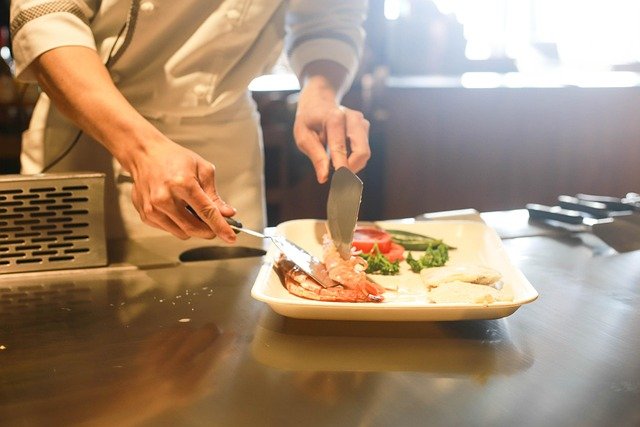Culinary Jobs: Roles and Skills in Professional Kitchens
The culinary field encompasses a range of roles that focus on food preparation, safety, and service across restaurants, hotels, and catering operations. This article outlines typical responsibilities, common skillsets, and workplace standards for culinary work, with attention to practical tasks like knife use, grill techniques, handling fish and meat, and maintaining hygiene in the kitchen.

What skills are essential for chef and restaurant work?
Technical cooking skills form the foundation of many culinary jobs. Proficiency with a knife, understanding heat control on a grill, and timing for meal preparation are central to consistent food quality. Line cooks and sous chefs commonly rotate between preparing vegetables, meat, and dessert components while coordinating plating with front-of-house staff. Communication, time management, and basic recipe literacy are frequently emphasized across restaurant and hotel kitchens to ensure efficient service without implying specific employment opportunities.
How do hygiene and uniform standards affect kitchen safety?
Hygiene practices are mandatory in professional kitchens to reduce foodborne illness risks. Routine handwashing, correct storage temperatures, and separation of raw and cooked items are standard procedures. Uniform requirements—chef coats, aprons, hair restraints, and appropriate footwear—support sanitary conditions and staff safety. Many establishments implement documented cleaning schedules and require staff training in food hygiene; these measures shape daily routines and expectations rather than indicating openings or hiring status.
What training supports sushi and Japan-related techniques?
Specialized preparation like sushi draws on techniques associated with Japanese culinary traditions, including precise rice seasoning, careful fish selection, and exact knife work for delicate cuts. Training for this area often focuses on fish handling, temperature control, and presentation aesthetics. Apprenticeships, focused workshops, and mentorship within a kitchen help develop the repetitive precision sushi requires. Such specialization represents one pathway within culinary careers and informs role responsibilities without asserting availability of positions.
How does grill work and meat handling influence meal preparation?
Grill stations demand attention to direct heat, searing, and carryover cooking to achieve desired doneness for proteins. Proper meat handling includes temperature checks, resting protocols, and cross-contamination prevention when working alongside vegetables and fish. Meal preparation planning in high-volume settings emphasizes staging, timing, and portion control to maintain consistency across plates. These operational practices provide a framework for tasks expected at various kitchen stations rather than a guarantee of job placements.
How do hotel kitchens, catering, and events differ from restaurants?
Hotel culinary teams often support diverse service types—breakfast operations, banquet service, in-room dining, and restaurant outlets—requiring flexibility across menus and pacing. Catering and events focus on scalable recipes, transport logistics, and on-site setup to preserve food quality for groups. Coordinating with service teams and following dietary requirements are central to catering roles. Understanding these distinctions helps clarify potential career pathways across settings while avoiding any suggestion of specific current openings.
What roles exist across kitchen stations and culinary pathways?
Common stations include garde manger (cold preparation), hot line, pastry or dessert, and pastry chefs or bakers who manage dessert production. Other roles involve inventory control, purchasing, and supervision, with chefs overseeing menu execution and quality standards. Career development may include certifications, on-the-job mentoring, and cross-training across stations to broaden technical capability. These pathways describe typical responsibilities and training options in the culinary sector without implying the presence of particular job offers or salary figures.
Conclusion
Culinary jobs cover a variety of responsibilities from precise sushi and fish handling to grill work, pastry production, and large-scale meal preparation for hotels and events. Emphasis on hygiene, uniform standards, and practical skills such as knife use and temperature control shapes daily practices in kitchens and catering environments. Understanding these roles and requirements can inform choices about training and specialization within the culinary field while maintaining a clear informational focus.






